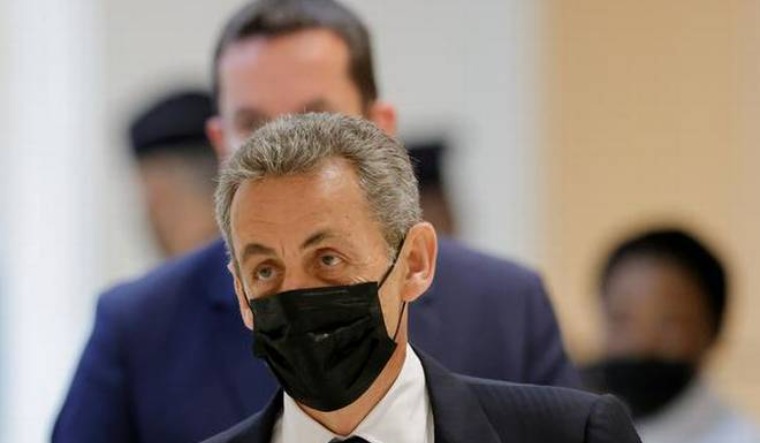Former French President Nicolas Sarkozy is facing a potential prison term in a verdict to be rendered on Thursday about campaign financing in his unsuccessful 2012 re-election bid — a ruling that comes seven months after he was convicted in a corruption and influence peddling case.
Sarkozy, France's president from 2007 to 2012, has vigorously denied wrongdoing during the May-June trial.
He is accused of having spent almost twice the maximum legal amount of 22.5 million euros ($27.5 million) on the re-election bid that he lost to Socialist Francois Hollande.
In March, he became France's first post-war president to be handed a custodial sentence when he was given a three-year term, two years of which were suspended, for corruption and influence peddling over attempts to secure favours from a judge.
Sarkozy's predecessor and mentor Jacques Chirac received a two-year suspended sentence in 2011 for corruption while he was mayor of Paris.
Sarkozy promptly appealed his verdict, and under French sentencing guidelines he has not yet been put behind bars -- judges said he could wear an electronic ankle bracelet.
Three months later he was back in the dock over his lavish 2012 re-election campaign.
Prosecutors have requested a six-month prison term, as well as a six-month suspended sentence and a fine of 3,750 euros (USD 4,354).
Thursday's verdict comes after Sarkozy, 66, was found guilty on March 1 of corruption and influence peddling in another case. He was given one year in prison and two years suspended in that case but is free pending appeal.
In the campaign financing case, prosecutors concluded that Sarkozy knew weeks before the 2012 election that his expenses — which are strictly limited under French law — were getting close to the legal maximum. They accused him of having ignored two notes from his accountants warning about the money issue.
also read
Prosecutors argued Sarkozy is “the only person responsible for his campaign financing” and that he chose to exceed the limit by organising many rallies, including giant ones.
During his hearing, Sarkozy told the court the extra money did not go into his campaign, but instead helped make other people richer. He denied any “fraudulent intent.” He also insisted he did not handle day-to-day organization because he had a team to do that and therefore could not be blamed for the amount of spending.
Sarkozy told the court that he had been too busy running the country to pay attention to an “accounting detail” and that the allegations he was reckless with public money were “a fairytale”.
In addition to the former president, 13 other people went on trial, including members of his conservative Republicans party, accountants and heads of the communication group in charge of organizing the rallies, Bygmalion. They face charges including forgery, breach of trust, fraud and complicity in illegal campaign financing.
Some have acknowledged wrongdoing and detailed the system of false invoices that aimed to cover up the overspending.
Prosecutors have requested mostly suspended prison sentences, and up to one year in prison for Bygmalion's co-founder.
Sarkozy retired from active politics in 2017, but is still playing a role behind the scenes. French media have reported that he is involved in the process of choosing a conservative candidate ahead of France's presidential election next year.












